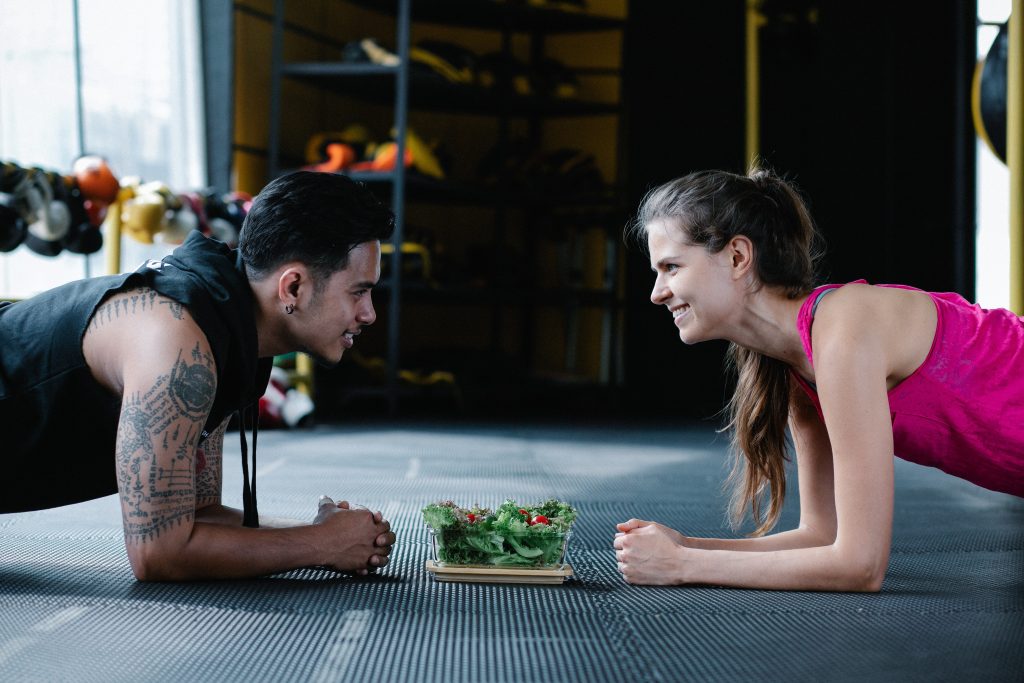Exercising is an effective way to improve your physical fitness and overall health, but it’s essential to ensure that you’re doing it correctly to avoid injury and maximize the benefits.
Many fitness buffs and people trying to lose weight go about their workout routines without knowing the small things that can make a big difference. But don’t give up on your dreams of a better body just yet. Use this guide to make sure you’re eating at the right time.
One of the most important things to consider when exercising is what to eat and when to eat it. Many people think they should wait to eat until after their workout to avoid feeling sick or sluggish.
But others say that eating before exercising can give you more energy. So, should you eat before a workout or after? The answer to this question depends on a few factors, such as the type of exercise you’re doing, your fitness level, and how much time you have before working out.
Should you eat before exercising?
Many experts recommend eating a small snack or pre-workout meal about 30 minutes to an hour before exercising, especially if you’re doing strenuous activities like running or lifting weights. Athletes need training fuel just like a car needs gasoline, and eating before working out gives your body the energy it needs to perform its best. This will also give your body time to digest the food and convert your body fat into energy you can use during your workout. How much food you should eat depends on how many calories you need to fuel your workout.
If you’re working out first thing in the morning and don’t have time to eat before, it’s still important to fuel up before heading to the gym. Have a small snack to give you the nutrients and calories you need to power through your workout. You can also drink a sports drink to rehydrate and give your body the electrolytes it needs for optimal performance. The temperature can also affect how well you tolerate food before exercising. For example, if you engage in winter Olympic sports, it may be easier on your stomach to eat before heading out into the cold.
It’s important to note that everyone is different, so you may need to experiment with eating before or after exercise to see what works best for you. Some people feel too full or sluggish after eating before working out, but if you have a light meal or snack, it can actually help improve your performance.
What should you eat before exercising?
When trying to figure out what to eat before working out, choosing easily digestible foods that give you sustained energy is essential. A mix of complex carbohydrates and protein is a good option, as carbs provide quick energy and maintain your blood sugar, and protein helps rebuild and repair muscles. 300-400 calories is an excellent range to aim for when eating before exercise because it will give you enough energy to power through your workout without making you feel too full.
Lighter workouts like walking or yoga can be done on an empty stomach since they aren’t as intense and don’t require as much energy. Gymnastic training like cheerleading, aerobic exercise, and trampolining may also need a small snack but not a full meal beforehand.

Some nutritious and easy to digest pre-workout snacks include:
- A banana or apple with peanut butter
- A small bowl of oatmeal with berries
- Half a turkey sandwich with cheese on whole-wheat bread
- Greek yogurt with granola
- A veggie wrap with hummus
- A small plate of mixed nuts
- Protein shakes
If you are doing a more strenuous activity, such as running or lifting weights to build muscle, you may want to have a slightly larger meal before working out. Even professional athletes schedule their meals long before an event. For example, some of the best water sports athletes eat a big dinner the night before a competition to ensure they have enough energy. This ensures that their bodies have enough energy to sustain them throughout their activities.
For a heavy workout, consider foods like:
- A tuna salad on a bed of greens
- A bowl of brown rice with veggies and beans
- A grilled chicken breast with quinoa and roasted vegetables
- A salmon salad with whole-wheat crackers
- A tofu stir-fry with rice
- A lean protein burger on a whole-wheat bun
- A veggie wrap with avocado and hummus
Drinking plenty of fluids is also essential, especially if you’re exercising in hot weather. Water is always the best option, but you can also opt for a sports drink to replenish electrolytes and amino acids. You should drink enough fluids to be well-hydrated before starting your workout to prevent severe muscle soreness. Post-workout drinks like chocolate milk are also excellent for helping your body recover after intensive exercise.
It’s important to listen to your body and figure out what works best for you. Some people feel better working out on an empty stomach, while others find they need a small snack or meal to fuel their workout. Experiment with different options to see what makes you feel the best and
What should you not eat before exercising?
But there are also some foods you should avoid before working out, specifically foods that are high in fat, simple sugars, or fiber. These can all lead to stomach discomfort or an upset stomach during your workout. They also take longer to digest, making you feel sluggish instead of energized.
So, before exercising, it’s best to steer clear of high-fat meats, fried foods, sugary desserts, and lots of fiber. Spicy food is also a no-go, as it can cause heartburn or indigestion. Hot drinks should also be avoided, as they can deplete your body of fluids. Alcohol is another big no-no before working out, as it will dehydrate you and make you feel nauseous.
What about pre-workout supplements?
Taking pre-workout supplements is a popular way to boost energy before heading to the gym. These supplements often contain ingredients for sports nutrition that can help improve focus and increase energy.

But you should also time your supplement intake properly to ensure that it doesn’t interfere with your workout. For example, if you take a caffeine pre-workout supplement, you should avoid drinking coffee or energy drinks close to your workout because you may become too jittery. Don’t take pre-workout supplements when full due to slow muscle protein synthesis; you should also avoid taking them on an empty stomach. You should aim to take them 30-60 minutes before starting your workout.
Pre-workout supplements are not necessary, but they can be helpful if you are struggling to get energized for your workout. Make sure you are hydrated when taking them, and start with a small dose to see how your body reacts. If you have any heart conditions or other health concerns, talk to your doctor before taking any pre-workout supplements.
When it comes to working out, there is no one-size-fits-all approach. Some people prefer to eat before working out, while others find that working out on an empty stomach is best. There are also different recommendations for what to eat before and after working out. If you’re ever feeling sluggish or uncomfortable during a workout, it’s best to stop and refuel.
Eating the right foods before and after your workout can help you stay energized and motivated, so you can get the most out of your workout. The most important thing is to listen to your body and do what feels best for you.

